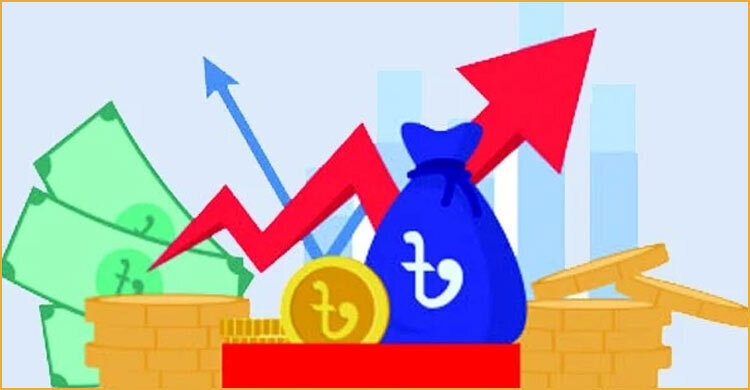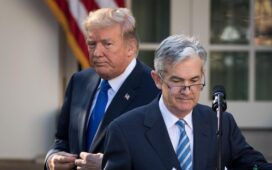As Bangladesh prepares for the upcoming fiscal year 2025-26, the nation faces a daunting economic landscape. The heat of inflation continues to scorch households, investment remains stagnant, and employment generation is sluggish.
Despite some positive indicators—such as growth in export earnings and remittance inflows—the macroeconomic challenges are far from resolved.
Economists stress that the next budget must prioritise curbing inflation, boosting investment, and addressing revenue collection gaps while ensuring social security for the vulnerable.
The scorching heat of inflation
Inflation, hovering around 9.5 per cent, remains the most pressing issue for Bangladesh. According to the latest data from the Bangladesh Bureau of Statistics (BBS), overall inflation slightly decreased from 9.94 per cent in January to 9.32 per cent in February.
However, this marginal decline offers little relief to low-income households who continue to grapple with soaring prices of essential goods.
Economist AB Mirza Azizul Islam emphasises that controlling inflation should be the primary focus of the upcoming budget. “Inflation is still close to 10 per cent. Steps should be taken to rein it in and bring it below 9 per cent,” he asserts.
To combat inflation effectively, economist MM Akash suggests a dual approach. First, the government must address supply-side gaps by procuring essential commodities either through imports or domestic procurement.
Second, one-third of daily necessities should be stockpiled in government warehouses to stabilise prices during shortages. “If prices rise, the government can release stored goods into the market to reduce costs. Conversely, if prices fall, the government can purchase directly from producers to support them,” Akash explains.
This strategy, first recommended by Mahbub Hossain’s task force in 1990, has yet to be implemented fully. If adopted now, it could leave a lasting “footprint” on the economy—a goal the current government claims to pursue.
Investment stagnation: A threat to growth and employment
While inflation burns wallets, stagnating investment stifles growth and employment opportunities. Private sector credit growth is declining, and defaulted loans are on the rise, creating an unfriendly environment for investors. Without increased investment, economists warn, there will be no growth, no jobs, and mounting socio-economic problems.
Azizul Islam highlights infrastructure bottlenecks, poor governance, and persistent issues with electricity and fuel as major deterrents to investment. “There are many problems in governance. Businessmen are not getting gas properly. These issues need urgent attention,” he says.
Akash proposes reviving employment through large-scale public works programs. Drawing inspiration from Azizul Islam’s 100-day employment guarantee scheme introduced during the caretaker government era, he advocates for similar initiatives tailored to both urban and rural areas. “The government can arrange 100 days of work during off-seasons, focusing on infrastructure development. This would provide job opportunities for at least three months annually, benefiting both rural and urban populations,” Akash suggests.
He also recommends leveraging technology to deliver cash assistance directly to the poor via mobile phones, akin to the emergency cash transfers implemented during the COVID-19 pandemic. Such measures could alleviate immediate hardships while fostering long-term resilience among marginalized groups.
Revenue collection: Bridging the gap
Revenue collection remains another critical challenge. Data from the National Board of Revenue (NBR) reveals that in the first eight months of the current fiscal year (July 2024 to March 2025), revenue fell short by Tk 58,000 crore compared to the target. Although there was a modest increase of Tk 4,000 crore compared to the previous fiscal year, the shortfall underscores systemic inefficiencies.
To bridge this gap, Akash advocates for enhanced wealth taxation. “Those who own more than two houses, more than two cars, or have bank deposits exceeding Tk 1 crore can easily be identified. A supplementary tax can then be imposed on them,” he explains. Currently, many wealthy individuals evade taxes despite existing regulations. Strengthening enforcement mechanisms could expand the scope of direct taxation, reducing reliance on regressive indirect taxes that disproportionately burden lower-income groups.
Bright spots amid challenges
Despite these hurdles, Bangladesh has seen notable progress in certain areas. Export earnings grew by 10.53 per cent during the first eight months of the current fiscal year, reaching $32.94 billion compared to $29.81 billion during the same period last year. Remittances surged ahead of Eid, with inflows totalling nearly $3 billion ($2.95 billion) in just 26 days—marking a historic high. Additionally, LC openings for imports rose by nearly 20 per cent in February, signalling potential demand recovery.
These achievements, however, are insufficient to offset broader economic woes. Economists caution against complacency, urging the government to channel these gains toward addressing structural weaknesses.
A budget for the people
As Bangladesh charts its course for FY 2025-26, the government faces a pivotal moment. The budget must strike a delicate balance between stabilizing the economy and safeguarding the welfare of its citizens. Controlling inflation, revitalising investment, reforming revenue collection, and expanding social safety nets are not just policy imperatives—they are moral obligations.
“The entire nation is suffering due to inflation and unemployment,” Akash reminds. “If we fail to address these issues now, the consequences will be dire.” For millions of Bangladeshis struggling to make ends meet, the stakes could not be higher.
Will the upcoming budget rise to the occasion? Only time will tell. But one thing is clear: bold, inclusive, and forward-thinking policies are needed to steer Bangladesh out of its current turbulence and onto a path of sustainable prosperity.





